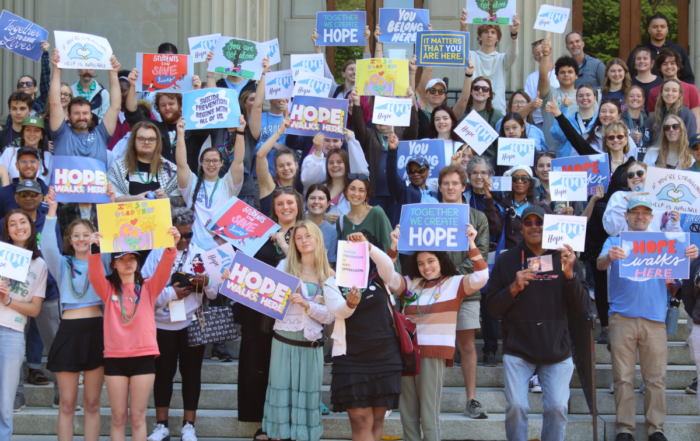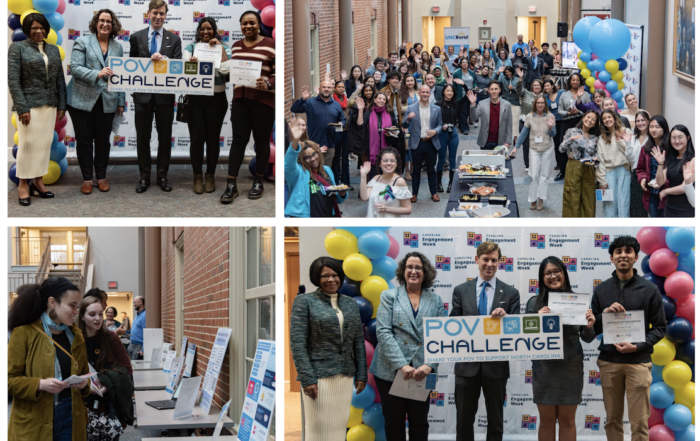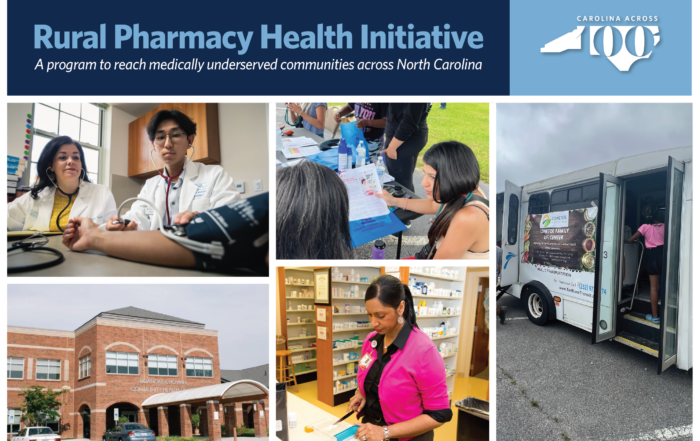Food Insecurity
Reimagining Food Systems: A Conversation with Community Food Lab
December 27, 2021
Erin White, principal and founder of Wake County's Community Food Lab, pictured at their collaborative workspace shared by socially-oriented small businesses.
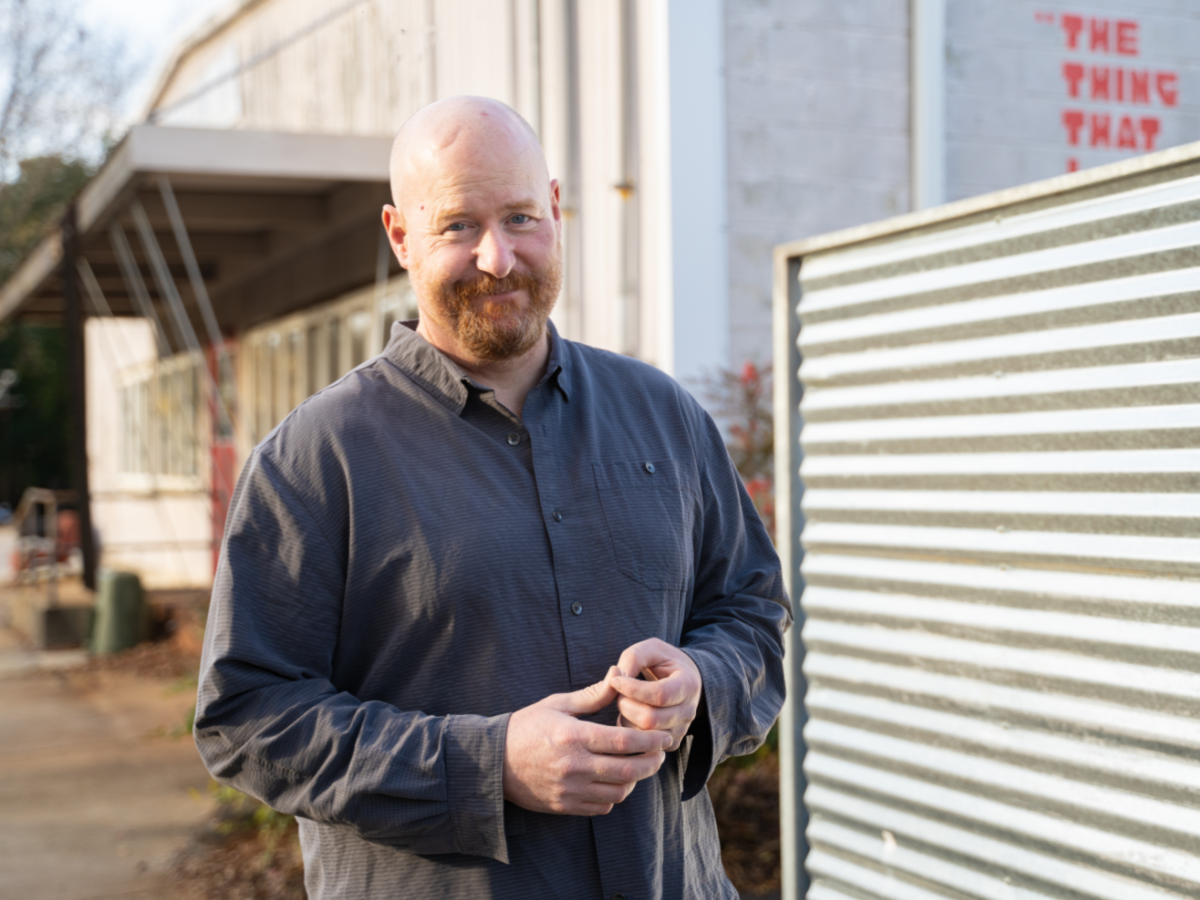
We grow it, we package it, we ship it, we cook it, we eat it. Food is essential to our lives but is becoming increasingly difficult to source, distribute, and consume during the course of the pandemic. Nearly half (48%) of Carolina Across 100 survey respondents indicated that food insecurity had gotten worse in their communities as a result of COVID-19. Survey respondents also reported that quick action and innovative ideas and partnerships by food security stakeholders were critical to address the immediate increased need. Examples of this include tighter partnerships between food banks and local schools, using school buses to deliver food to students while at home, food pantries collecting and distributing surplus food from farmers markets when they were closed due to pandemic restrictions, churches starting community gardens, the creation of neighborhood-level mutual aid networks to provide food and other supplies for neighbors who were not able to leave their homes, pairing food distribution services with vaccine clinics, and using social media to promote the availability of food at specific locations.
Reimagining Food Systems
Supply chain issues that cause shortages and delays in providing people with everyday essentials like food are rooted in a lack of systems-based thinking. Erin White at Community Food Lab is a food systems consultant based in Wake County who helps non-profits, local governments, and private partners examine their whole food systems to mitigate food insecurity issues-–from production and distribution to consumption and waste management. Community Food Lab uses design thinking to reimagine food systems for various stakeholders. Erin’s background is ripe for his interdisciplinary work. A graduate from Bowdoin College with degrees in Biology and Environmental Studies, Erin has worked in public health, as a chef, and got into the construction industry before pursuing his master’s degree in architecture.
“Design thinking is a discipline that can pull all my experiences together. Food systems work allows me to take advantage of all the things I’ve done. To be a creative problem solver in an area with lots of urgent problems. I shifted my focus from designing buildings to designing food systems. Community Food Lab was the platform to do that.”
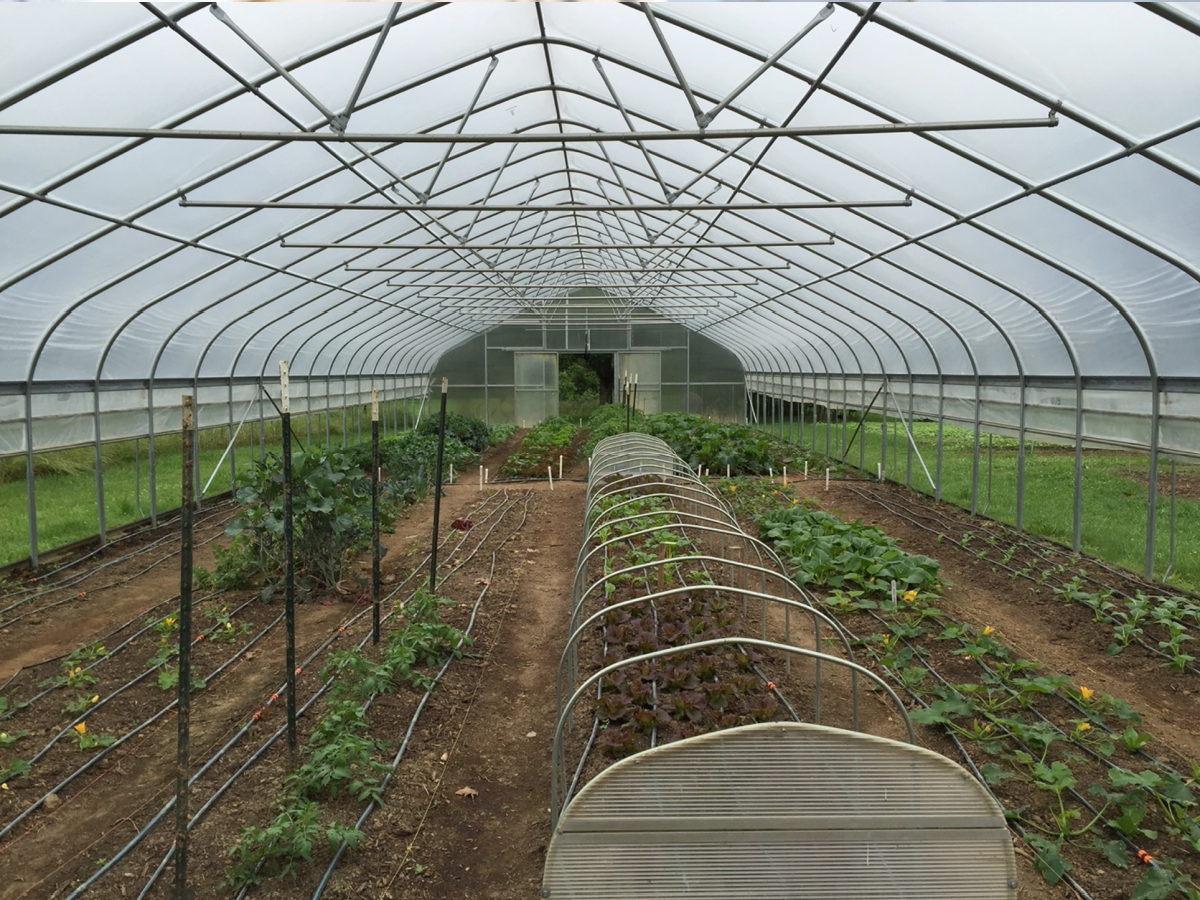
Removing Roadblocks by Cultivating Food Relationships
Before COVID, Community Food Lab was mainly working with visionaries on innovating food systems and relationships that made it possible to bring food to people. During COVID, it became clear to local organizations that food systems were no longer a pie in the sky vision, but a necessity to ensure kids and families were being fed. Federal funding from the USDA and ARPA started pouring into food pantries, farms, supply chain operatives, and producers to build back resilient food systems and local economies.
COVID illuminated long-standing systems challenges in the relationships among food producers, transporters, consumers, and waste managers. Food-insecure students relied on going to school for subsidized breakfast and lunch. Remote learning highlighted food distribution challenges when those students no longer had access to breakfast and lunch throughout the pandemic. Food pantries had to step up and increase outreach efforts, proving fault-lines in food distribution before the pandemic.
In fact, Community Food Lab worked with the Capital Area Food Network in 2017 to facilitate and organize relationships among all the stakeholders in the food security network. Once COVID started, municipal leaders knew exactly which organizations needed funding to provide emergency food relief and increase supply security. That’s a key example of how food systems planning creates resilient communities when crisis strikes and provides a baseline for strong production and supply chain to feed our communities during stable times as well.
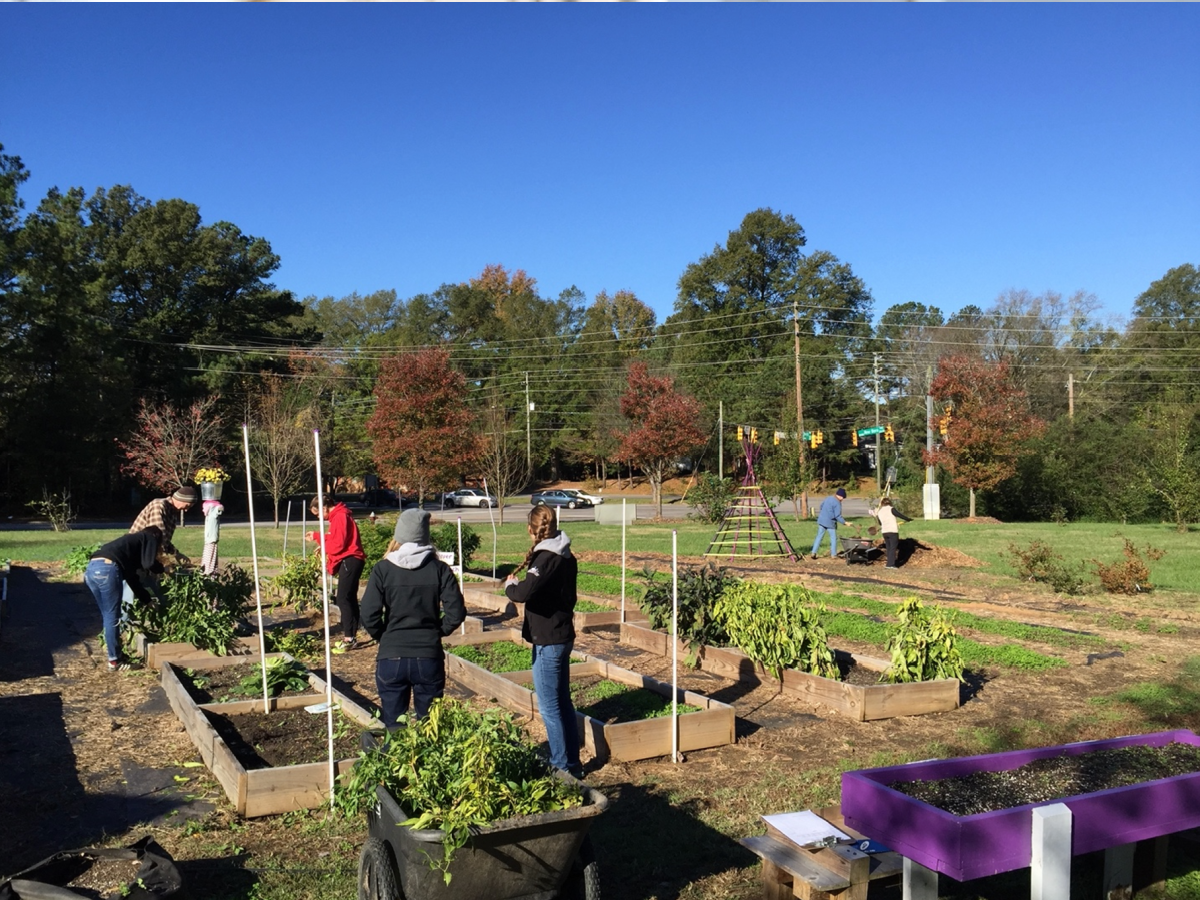
Adding Economic Opportunity
Now, municipalities, community organizations, and private stakeholders realize the importance of food systems in not only feeding communities but developing economies.
The Community Food Lab’s work is a testament to how strengthening food relationships can grow our community’s awareness around healthy eating, sustainable practices, and the economic potential of local food systems.
Erin’s team worked closely with Reinvestment Partners in Durham to reimagine a downtown corridor into an urban food hub that would educate neighbors on sustainable food and eating practices while creating economic activity through a collaborative food space that leases space to non-profits and food businesses. Community Food Lab collaborated on a learning garden operated by the Inter-Faith Food Shuttle, designed the Bull City Cool food hub, and helped shift a corner store to healthier food options. All of these efforts were intentionally designed to strengthen each part of the food system–consumer education, distribution, outreach, and healthy food access in an urban corridor.
This type of work will be the future, Erin thinks. “Municipal governments have thought of food as primarily a rural issue, but food systems connect all of us.” The future will have to connect urban pockets with rural areas by leveraging billions of dollars of food spending and activating more farms across counties. By doing this “we can add economic opportunity to rural farms, support small food businesses in urban and rural North Carolina, create distribution opportunities in urban pockets, and educate North Carolinians on where their food is coming from with carbon reduction opportunities within the whole system.” Read more about food insecurity in North Carolina.
UNC-Chapel Hill’s Carolina Across 100 initiative is a five-year program charged by Chancellor Kevin Guskiewicz which will partner with communities in all 100 North Carolina counties to aid in pandemic recovery and help build resiliency. Learn more about the issues impacting our state and the people working to alleviate those issues by visiting our Stories page.


